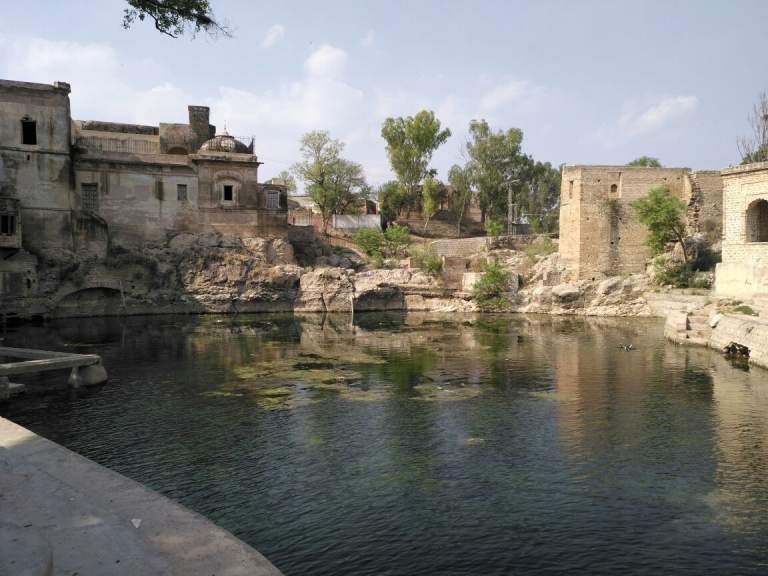ISLAMABAD – Pakistan’s top court has wrapped up the Katas Raj suo motu case after assurance from cement factories to arrange alternative sources of water within six months and pay for the present water use until then.
The historic pond at Katas Raj temples in Chakwal, a revered site for Hindus, is said to have depleted due to operations in the vicinity of several cement factories that have sucked out the underground water.
During Tuesday’s hearing, Punjab Additional Advocate General (AAG) Asma Hamid told the court that till the factories arrange alternative sources of water, the provincial government will charge them for their present use of water.
The cement factories assured Chief Justice of Pakistan Justice Saqib Nisar, who was heading a three-member bench, that they would build a small dam in the area, the outflow of which will be maintained in a way that the pond at Katas Raj is not adversely affected.
The court also ordered the factories – Bestway Cement and DG Khan Cement – to submit Rs2 billion as bank security, before concluding the case.
https://en.dailypakistan.com.pk/pakistan/katas-raj-everything-free-for-pakistans-eco-terrorists-at-kahoon-valley/
The CJP noted that the cement factories would also have to improve the system of smoke exhaust keeping in view the global standards. “If needed, the court will have the smoke exhaust system checked,” he said.
He said that the factories should not cause pollution in the area and ensure the pond in Katas Raj temple is filled.
“It is our responsibility to take care of worship places of minorities,” he said while observing that the chairperson of the Evacuee Trust Property Board (ETPB) should be from the minorities.
“We are Muslims. We are in a majority here,” Chief Justice Nisar remarked, explaining that the court has given an observation in this regard.
The apex court had, earlier this year, dismissed PML-N veteran Siddiqul Farooq from his ETPB chairmanship.
Justice Ijazul Ahsan, a member of the SC bench, observed that the underground water table of the area will increase when the factories and water pumps are closed down.
The top court, in November last year, had taken notice of reports that the pond in the Katas Raj temple complex was drying up because cement factories nearby were drawing a large amount of water through a number of sub-soil wells.
On April 2, the SC ordered the cement factories around the Katas Raj Temples to come up with a policy for payment of water used in the past and that to be consumed in the future.
During the course of hearings, the apex court had time and again admonished the private cement factories for putting profits before the environment.
The chief justice had also warned of shutting down the factories for their gross negligence.
According to a Hindu legend, Lord Shiva cried on the death of his wife Sati and his tear formed Katas Raj pond. Temples of Shiva, Ram and Hanuman were built around this pond.
Temples built at least more than a century ago are connected to one another by walkways. The name of the temple complex, located near Kallar Kahar, is derived from the Sanskrit word ‘kataksha’ which means ‘tearful eyes’ and every spring and autumn, Hindu pilgrims from Pakistan and India visit the pond to bathe and ‘wash off their sins’.
The area around the Temples, the second-most sacred worship place for Hindus, is full of minerals like limestone, gypsum, coal and salt.













